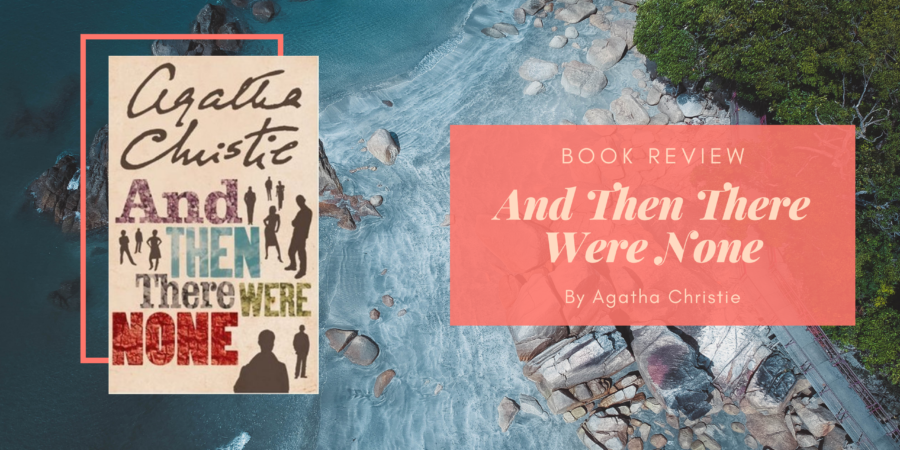So… I’ve somehow joined a real life bookclub, which is exciting because I get to talk to people about books in real time! I couldn’t make it to the first meeting, but someone chose Agatha Christie as the second book so I am already feeling very positive about this group of people!
Even if I had never read this book, it would have been impossible to escape the influence that And Then There Were None had on the mystery genre. After all, it is the best-selling mystery of all time (according to Wikipedia), although I wonder if it should be given the title of “thriller” instead. After all, there is no detective in this book and no one ever solves the murders that do occur.
Rereading this book, I realised that Christie wrote very well-plotted, tight stories. The book feels short (I finished it in less than an hour) and the events move at a fast pace, compelling the reader forward. There’s a sense of dread that steadily grows, and according to my bookclub friends, the audio-version is even creepier. The characters might think that they have a chance to find the murderer and save themselves, but as a reader, the sense of inevitability only grew stronger and stronger with each page.
One thing that I thought was really interesting were the types of crimes in the book. Without trying to spoil too much, each of the victims here were chosen because they had committed crimes that the law couldn’t punish. Some of them are those that we would all get upset about (running over children and purposely neglecting your employer so she dies and you can get her inheritance are two examples), while others are slightly more ambiguous. Is a mistake on the job bad enough to condemn you? Or, to modify an example: if you breached the rules of your employment and were fired because of it, leading to you becoming suicidal due to financial worries, is it:
a. your fault for breaching terms of employment
b. your employer’s fault for firing you
c. society’s fault for not giving you enough support/stigmatising you for losing your job
In this book, the answer is b, which I think is worth thinking about. Clearly, in the eyes of the murderer, the moral baseline isn’t “don’t do bad things”, it’s “the right thing (in your eyes) leading to a tragic ending is still a wrong action.” Having this one character as a victim probably provided the most food for thought for me.
Overall, I enjoyed this reread – both because it’s an excellent story and because I noticed something new about it.
Featured Image: Photo is from Canva

Oooh I’ve never been a part of an in real life bookclub but it sounds really fun! And a great excuse to re-read some Christie!
It is fun! Although I have to admit that we spend half the meeting talking about food 😂
As any good friendship group should haha
You make me want to re-read this one. 🙂 I am glad you found a good book book club!
Thank you! I’m glad too! Hope you find time to reread this one (: